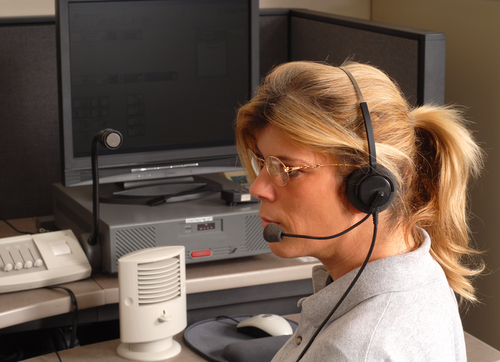
As FirstNet nears an award of a sizable contract to a private vendor to deploy a Nationwide Public Safety Broadband Network, some states including New Hampshire, Colorado, Alabama and Arizona have explored alternative statewide networks to strengthen emergency communications.
“Interoperability remains a central issue and a challenge for organizations throughout the state and I believe anywhere in the country,” John Stevens, statewide interoperability coordinator at the New Hampshire Department of Safety, told Homeland Preparedness News.
FirstNet is tasked with developing the first nationwide, LTE network for public safety that will initially carry mission-critical high-speed data, images, video and text. An independent authority within the U.S. Department of Commerce’s National Telecommunications and Information Administration, FirstNet has been coordinating with states to develop network plans that meet their needs.
Strengthening sometimes spotty and limited communications systems for police, fire and emergency medical services is expected to have a profound effect on improving public safety.
FirstNet has a $6.5 billion budget to create a public-private partnership to ensure the building and operation of the network over 25 years. FirstNet is not expected to award the contract before March 1.
States have the option of accepting FirstNet’s proposed implementation plan or choosing to opt-out and request proposals to construct and operate their own state-specific network. Alternative state networks must be compatible with the Nationwide Public Safety Broadband Network and plans must be submitted to the Federal Communications Commission.
FirstNet is expected to deliver draft state plans to governors in the second half of the year.
“We continue to remain in lockstep with FirstNet in regards to making sure that New Hampshire is actively involved in FirstNet so when FirstNet begins to build out throughout the country that New Hampshire is represented,” Stevens said.
However, New Hampshire is also looking into building an alternative system that would connect to the nationwide network.
“I think from what we understand from FirstNet – for New Hampshire and for a number of states that have a lot of rural areas – FirstNet could possibly be somewhat of a limited footprint for our state,” Stevens said.
New Hampshire issued a request for proposals in late 2015 and entered into an agreement last year with Rivada Networks to develop a statewide LTE radio access network plan for the state to compare with FirstNet’s plan. The state has not opted-out of using FirstNet, but wants to present the governor and executive council with a choice.
“We are very confident that once the state plan is provided by FirstNet, that we will have an alternative plan here that, if approved, the governor can make the best decision based on what is best for the state of New Hampshire,” he said.
Similarly, the Colorado governor’s Office of Information Technology published a request for information last year about alternative radio access network models for the state.
“It is our belief that this decision will shape public safety communications for a generation so we feel compelled to provide the most comprehensive analysis possible to ensure that an informed decision is made,” Brian Shepherd,
Colorado’s broadband program manager in the governor’s Office of Information Technology, said in written remarks.
Alabama and Arizona also issued RFPs in 2016 seeking information on their own alternative statewide plans for emergency communication.
In New Hampshire, with its mountainous terrain, public safety entities currently use two different communications networks. The majority of first responders communicate via VHF radio frequency, which works well in rural areas, while in the two largest cities of Manchester and Nashua an 800 megahertz frequency is utilized. The different networks, at times, pose interoperability problems.
Coverage gaps exist across parts of the state that create radio system reliability and officer safety concerns. To counter that, the New Hampshire Division of State Police is accepting proposals from vendors to develop a new public safety radio system with updated technology to replace its aging equipment.
The state wants to enhance coverage for first responders with a new land mobile radio system to replace its existing digital system and a new internet protocol-based radio dispatch console system.
“We want to make sure that we’re staying ahead of the curve and that we are replacing consoles throughout the state so our system remains current,” Stevens said.
Meanwhile, a number of city and state police departments in New Hampshire will participate in an interoperability tabletop exercise in February. The goal of the training will be to improve communication between various agencies in multiple jurisdictions during an emergency. The exercise was created after communications issues arose last year when a Manchester officer was shot and wounded.
“At the end of the exercise we hope to address the issues that were presented but to also provide a standard operating procedure template for organizations to utilize that will address interoperability issues,” Stevens said.




